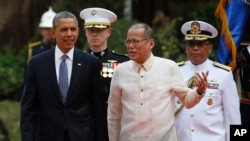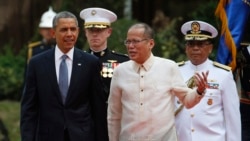The United States is a Pacific Rim nation and, as such, is affected by events taking place in the Asia-Pacific region and shares many of the same goals and concerns as the nations of Asia. And as a trading nation, the United States depends on a stable, prosperous Asia for its own economic stability and security.
That is the foundation of the Obama Administration’s policy toward the Asia-Pacific region, said Assistant Secretary for East Asian and Pacific Affairs Daniel Russel recently at the Baltimore Council on Foreign Affairs.
As Assistant Secretary Russel said, “[The U.S. rebalance] policy is built on a simple idea: the region is hugely consequential to the U.S.... Yet, when we looked at how our government’s resources were distributed – diplomatic and development personnel and funds, military assets, and the time and attention of senior leaders – we realized that the distribution of our resources didn’t match the growing importance of the region and our goals there. The distribution was out of balance.”
Over the last five years, Assistant Secretary Russel explained, the United States has worked to rebalance its attention and resource to the dynamic Asia-Pacific.
The rebalance focuses on three areas that support and reinforce each other: strengthening our alliances and partnerships, building up regional institutions, and engaging with emerging powers.
For example, the United States has strengthened relations with its five regional treaty allies-- Australia, Japan, the Republic of Korea, the Philippines and Thailand.
The United States has also increased our economic and trade activity by, for example, negotiating the Trans-Pacific Partnership, TPP, trade agreement.
The United States is helping to build up the region’s security and economic multilateral institutions, such as the Association of Southeast Asian Nations, the Asia-Pacific Economic Cooperation forum, and the Lower Mekong Initiative.
Finally, the United States is deepening its partnerships throughout the region, and especially with emerging powers like China, Indonesia, and Vietnam. Expanding people-to-people ties is important throughout the region, and especially with emerging powers.
“Relations with the Asia-Pacific region matter to all Americans for our economy, our security, and the advancement of our values.”
That is the foundation of the Obama Administration’s policy toward the Asia-Pacific region, said Assistant Secretary for East Asian and Pacific Affairs Daniel Russel recently at the Baltimore Council on Foreign Affairs.
As Assistant Secretary Russel said, “[The U.S. rebalance] policy is built on a simple idea: the region is hugely consequential to the U.S.... Yet, when we looked at how our government’s resources were distributed – diplomatic and development personnel and funds, military assets, and the time and attention of senior leaders – we realized that the distribution of our resources didn’t match the growing importance of the region and our goals there. The distribution was out of balance.”
Over the last five years, Assistant Secretary Russel explained, the United States has worked to rebalance its attention and resource to the dynamic Asia-Pacific.
The rebalance focuses on three areas that support and reinforce each other: strengthening our alliances and partnerships, building up regional institutions, and engaging with emerging powers.
For example, the United States has strengthened relations with its five regional treaty allies-- Australia, Japan, the Republic of Korea, the Philippines and Thailand.
The United States has also increased our economic and trade activity by, for example, negotiating the Trans-Pacific Partnership, TPP, trade agreement.
The United States is helping to build up the region’s security and economic multilateral institutions, such as the Association of Southeast Asian Nations, the Asia-Pacific Economic Cooperation forum, and the Lower Mekong Initiative.
Finally, the United States is deepening its partnerships throughout the region, and especially with emerging powers like China, Indonesia, and Vietnam. Expanding people-to-people ties is important throughout the region, and especially with emerging powers.
“Relations with the Asia-Pacific region matter to all Americans for our economy, our security, and the advancement of our values.”






